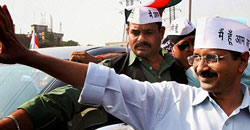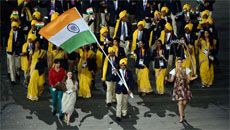Tim Schouls, political studies instructor at Capilano University put it blunt when he said, “In the general sense, the Conservatives are in a bit of trouble,” citing a number of areas, most especially the Senate scandal, which choked up national headlines back in 2012 when the entire situation unraveled at the behest of the work of auditor general, Michael Ferguson.
Further crowding the federal agenda was the Temporary Foreign Worker Program and, most recently, the tabling of the Conservatives’ fourth omnibus bill in just three years.
But another election nonetheless looms and with shifting dynamics.
Senate Expense Scandal
Auditor General Ferguson uncovered a substantial controversy in the fall of 2012 when he revealed Conservative Senator Patrick Brazeau made inaccurate claims of travel and living expenses. Brazeau was just the initial tug on the yarn.
Upon further examination, the problem worsened as additional senators on both sides of the aisle were revealed to have made similarly false expense claims, and would thus be formally charged by the RCMP.

The list would include then-Liberal Senators Mac Harb and Pamela Wallin as well as Conservative Senator Mike Duffy.
The latter implication further embroiled the Prime Minister in scandal as claims surfaced that Nigel Wright, the Prime Minister’s then chief-of-staff, cut Duffy a $90,000 personal cheque to cover the public funds Duffy was to pay back. The crux of the incident, for the Opposition at least, was how much Harper knew.
Of course, the Prime Minister went on record to say he knew nothing about the transaction and that if he had known, he would have advised against it.
“From the beginning, my position has been clear,” the Prime Minister said in the House in June of last year, “any inappropriate expenses should be refunded to taxpayers by the senators concerned.”
The following month, in Calgary, the Prime Minister reiterated: “The decision to pay money to Mr. Duffy out of Mr. Wright’s personal funds was made solely by Mr. Wright and was his responsibility. Obviously, had I known about this earlier I would never have allowed this to take place.”
Currently, the RCMP has charged all senators, excluding Wallin Duffy currently faces 31 charges, which includes fraud, breach of trust and bribery.
Further exacerbating the situation for Harper, outside his close proximity to the incident, is that three of four entangled in the snafu are his appointees and that Duffy’s trial, set for spring, is to last through June of next year.
Temporary Foreign Workers
Canada’s Temporary Foreign Worker Program (TFWP) has seen its hiccups over the past few years, but this year, when a Victoria-based McDonalds chain was found to favour temporary workers over Canadian employees, just after the Royal Bank of Canada TFWP debacle in 2013, the program came under opposition fire. It led to substantial reform of the program last April.
Essentially, the overt changes made were generally arranged in order to limit the scope for those employers using temporary foreign workers in low-skill sectors, most especially in the gaps where unemployment are highest.
The most significant change announced by employment Minister Jason Kenney, was the banning of the restaurant industry from use of the program, calling it a “moratorium” and walking away.
As a result, the federal government reported a 75 per cent reduction in the number of applicants received for temporary foreign workers this past July and August, compared to the same period in 2012.
That ban was lifted last September, though the TFWP reforms remain and to the chagrin of the NDP.
Omnibus Budget Bill No. 4
The Conservatives have demonstrated their knack for making sweeping legislative changes via omnibus bills, and in 2014, Canadians witnessed nothing different.
In similar fashion to 2012, the Tories tabled two omnibus bills, the latest occurring just on the backdrop of two shocking attacks.
The Conservative government initially tabled their third omnibus bill back in March,
listed as another budget implementation bill that made changes to rail safety rules, Trademarks Act and taxes for hospital parking, just to
name a select few.
The latest omnibus bill, bill C-43, includes legislation that ranges from the restriction of refugee access to social assistance to expanding the nation’s DNA database from the current two indices, to include family members of missing persons.
And this just grazes the surface of bill that appeared so quickly many political scientists spoken to didn’t even know of it, or could recall that their was indeed a fourth omnibus bill.
In 2012, the Conservatives, with their handy 160-plus House majority, were able to push through bills C-38 and C-45, which,
collectively, stood at 863 pages, and amended over 70 laws.
In Opposition
In the final leg of the New Democratic Party’s first stint as the Official Opposition, party leader Mulcair has played the parts of orator, Grand Inquisitor and quintessential social democrat since assuming his duty in 2012.
Having no Senators in the Red Chamber, the expense scandal was (and remains) an opportune moment to strike at the Conservative heart and moral compass of the Prime Minister. To any
Question Period spectator, it was evident; Mulcair was a relentless hound on the back of the 55-year-old Prime Minister, harping on alleged facts and questions surrounding the Harper’s knowledge and involvement. Even in recent Question Periods, the subject of the expense scandal is raised so as not to drown the issue. But the issue is now before the courts.
In relation to the TFWP, in a June press release, the Opposition cited that the “changes announced today to the Temporary Foreign Worker Program don’t go far enough to fix it and show the depth of the Conservatives` incompetence.”
Jinny Sims (Newton – North Delta MP), NDP critic for employment and social development, argued that, “their changes aren’t actually making sure employers hire Canadians first or protecting temporary foreign workers from abuse.”
Most steadfast opposition, however, has arrived via criticism of the government’s omnibus bills, the latest one included.
Called a “kitchen-sink bill,” the NDP, aside from raising ire over the use of such sweeping bills, especially singled out the Conservative attack on the cuts to social assistance refugees in Canada could access.
“It suggests to me that they are pursuing the Fortress Canada approach to refugees to the nth degree,” New Democrat MP Craig Scott was quoted by Canadian Press as saying. The NDP has vowed to fight the measure, among perhaps other items.
The use of omnibus bills, Scott added, was precisely to avoid the kind of scrutiny such controversial proposals like the aforementioned refugee social assistance cuts.
Canadian politics instructor, Dr. Stephen Phillips, explained that omnibus bills do have a place in Canadian Parliament, but purely as a housekeeping measure.
When there are a series of amendments, perhaps statute name changes, which may affect a number of items concurrently, an omnibus bill can be utilized to clean up all affected legislative areas, in one fell swoop. They are designed for efficiency.
In 2012, the Tories, with their handy 160-plus House majority, were able to push through bills C-38 and C-45, which, collectively, stood at 863 pages, and amended over 70 laws.
Election on the Horizon
The Canadian federal election is tentatively scheduled for October 19, 2015, and it will be historic. After the Conservative government tabled Bill C-20 to expand the House of Commons by 30 seats (338 in total), 15 new electoral districts for Ontario, six for Alberta and British Columbia, and three for Quebec, a new dynamic will exist and perhaps in favour of the governing party.

Schouls says that, “The reallocation of seats seems to suggest a benefit for the Conservatives more than the others.”
This he bases on the voting data and general spectrum of voters that exist near or in these additional electoral boundaries.
However, Schouls cautions, the Tories have been in power since January 2006. The natural election cycle — or “freshness” indicator — of a party, is nine years.
After the cycle, Schouls says, voters often look for something different, they look for change.
Toward 2015
The economy ought to remain a top issue in 2015 and is the Conservatives’ strongest appeal, says Schouls.
The tight fiscal conservatism positioned Canada, the world’s fourteenth largest economy by purchasing power parity (PPP), relatively well in relation to other markets, especially throughout
Europe, this the Conservatives will try to hang their hat on again just as oil prices continue to drop.
In addition, there does exist considerable regional economic inequalities in Canada and policies like income-splitting, something the late finance minister Jim Flaherty shifted away from, stating at one time, “I'm not sure that overall it benefits our society,” could indeed displace the Conservative position with middle class voters.
Schouls imparts, “It does strike me as an unfair tax break for the well off . . . and for traditional families.”
Though the Liberals have yet to unveil their platform for the 2015 election, the emergence of Trudeau, Liberals hope, will help the party catapult its way out of the lower depths of the House.
An apparent middle class advocate, Trudeau’s strong position against the aforementioned income-splitting a clear example of this, plus his appeal to younger voters and women, may be the political resurgence the Grits need after falling 43 seats short of their previous mark in 2008.
The latest opinion poll by Ottawa-based EKOS Research indicates the Liberals are ahead of the pack at 33.4 per cent. The Conservatives trail in second at 27.8, and the NDP at 21.4.
Thus with the NDP hoping to retain and build on their 58-seat (of 75) stranglehold in Quebec, the pandering begins, hence the $5 billion federal handout both NDP and Liberals are pushing in favour of to help build a new multi-lane bridge across the St. Lawrence River.
In addition, the NDP, with a proposed $15 a day national childcare program, a (symbolic) $15 federal minimum wage and an environment rights bill, the party terms a “landmark” bill to enshrine environmental rights for Canadians, hope they can improve upon 2011.
Regardless, Canada’s 42nd Parliament looms before us, as does our inevitable future in true North.




